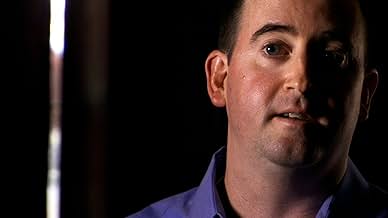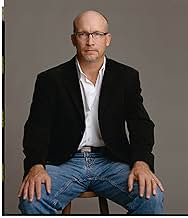IMDb RATING
7.1/10
1.7K
YOUR RATING
A probing investigation into the lies, greed and corruption surrounding D.C. super-lobbyist Jack Abramoff and his cronies.A probing investigation into the lies, greed and corruption surrounding D.C. super-lobbyist Jack Abramoff and his cronies.A probing investigation into the lies, greed and corruption surrounding D.C. super-lobbyist Jack Abramoff and his cronies.
- Awards
- 2 nominations
Jack Abramoff
- Self - Lobbyist
- (archive footage)
Ralph Reed
- Self - Republican Activist
- (archive footage)
Grover Norquist
- Self - Republican Activist
- (archive footage)
Jonas Savimbi
- Self - UNITA Rebel Leader, Angola
- (archive footage)
Lewis E. Lehrman
- Self - Financier, The Democratic International
- (archive footage)
- (as Lewis Lehrman)
- Director
- Writer
- All cast & crew
- Production, box office & more at IMDbPro
Storyline
Did you know
- TriviaThe dramatic cinema movie Casino Jack (2010) and the feature film documentary Casino Jack and the United States of Money (2010), which were both pictures about the same subject, both actually debuted and premiered in the same year of 2010.
- Quotes
[first lines]
Jack Abramoff: [in an e-mail message to Alex Gibney] Why would you want to make a documentary? No one watches documentaries. You should make an action film!
Featured review
"Casino Jack" is about the Jack Abramoff lobbying/influence-peddling/fraud scandal ...and more. It's firmly in the form of a "documentary", but with a much larger team and budget and higher production values than that category label might at first lead you to expect. For example, many scenes that could be nothing more than dry transcript reading are in fact voiced by an actor over an image of a moving reel tape player as well as the printed materials.
The film is not particularly "slanted" or "one-sided" (although it's fairly easy to figure out where the filmmakers sympathies lie), and doesn't try hard to "demonize" any individual (although some subjects do a pretty good job of demonizing themselves). The film's main challenge is to circumscribe the large and somewhat ill-defined subject of money's influence on U.S. politics into a single coherent short story. Using the Jack Abramoff scandal as the framework to do that is inspired, but still barely enough. All the different sorts of scams that even that one individual was connected with can be a bit unwieldy (quick, how are garment sweatshops, Indian casinos, and a fleet of gambling ships related to each other?).
The film's (non)distribution is awful; don't take it as indicative of the quality. As is usual for "Participant" films, this film wants you to think for yourself and avoids "blood boiling". That also seems to mean it hasn't got enough commercial potential to get the full attention of the right people ...but even so I can't figure out why it's so inadequately distributed that it's just plain hard to find in most markets. You have to seek it out - it won't find you.
Lots of psychological background information about what may have made various people tick is presented. I found much of it pretty scary. Several political operatives -including some with a very different public persona- are shown to be driven by a "win at any cost" mentality and to have no sense of fairness nor appropriateness (let alone any discernible personal morals). Quite a few are shown to be driven by a "spy novel mentality", and to have played at being guerrilla soldiers. When the least offensive word to describe people is "paranoid", I quake in my boots. There's at least one case of a Luddite revulsion against modern technology and modern society in general, motivated by a rosy fantasy of small village life. And there's at least one explicit case -and several more implicit ones- of someone so totally engrossed in "doing a good job" that they only think about "the big picture" when reality clubs them over the head once every few years.
The film lays out pretty clearly the tight connections between lobbyists and the administration in power at that time. It quickly moves on after convincing the viewer that lobbyists couldn't bend our government into doing something it didn't already sort of want to do anyway.
In the end, the film tries to make the case that we're not talking about one bad apple, nor even about lots of bad apples, but about something about the barrel that causes apples to go bad. And the film suggests what that might be. The hugely rising and now outrageous cost of political campaigns is mentioned, as are the fact that federal politicians have to spend part of every day raising money, and even that they typically have a _permanent_ campaign organization. One politician whose career was upended by the scandal even explicitly says the words "public funding of campaigns". I was surprised listening to the people around me in the theater that even though the film's projection of this message seemed very plain to me, it could be completely missed by many viewers.
While the film mostly focuses on the Jack Abramoff scandal, it does mention the more recent financial crisis, and how campaign contributions and influence peddling may have contributed it. The film very briefly states its point that scores of nameless participants in the system can -and continue to- do far more damage than one rogue "super" lobbyist ever did.
The film is not particularly "slanted" or "one-sided" (although it's fairly easy to figure out where the filmmakers sympathies lie), and doesn't try hard to "demonize" any individual (although some subjects do a pretty good job of demonizing themselves). The film's main challenge is to circumscribe the large and somewhat ill-defined subject of money's influence on U.S. politics into a single coherent short story. Using the Jack Abramoff scandal as the framework to do that is inspired, but still barely enough. All the different sorts of scams that even that one individual was connected with can be a bit unwieldy (quick, how are garment sweatshops, Indian casinos, and a fleet of gambling ships related to each other?).
The film's (non)distribution is awful; don't take it as indicative of the quality. As is usual for "Participant" films, this film wants you to think for yourself and avoids "blood boiling". That also seems to mean it hasn't got enough commercial potential to get the full attention of the right people ...but even so I can't figure out why it's so inadequately distributed that it's just plain hard to find in most markets. You have to seek it out - it won't find you.
Lots of psychological background information about what may have made various people tick is presented. I found much of it pretty scary. Several political operatives -including some with a very different public persona- are shown to be driven by a "win at any cost" mentality and to have no sense of fairness nor appropriateness (let alone any discernible personal morals). Quite a few are shown to be driven by a "spy novel mentality", and to have played at being guerrilla soldiers. When the least offensive word to describe people is "paranoid", I quake in my boots. There's at least one case of a Luddite revulsion against modern technology and modern society in general, motivated by a rosy fantasy of small village life. And there's at least one explicit case -and several more implicit ones- of someone so totally engrossed in "doing a good job" that they only think about "the big picture" when reality clubs them over the head once every few years.
The film lays out pretty clearly the tight connections between lobbyists and the administration in power at that time. It quickly moves on after convincing the viewer that lobbyists couldn't bend our government into doing something it didn't already sort of want to do anyway.
In the end, the film tries to make the case that we're not talking about one bad apple, nor even about lots of bad apples, but about something about the barrel that causes apples to go bad. And the film suggests what that might be. The hugely rising and now outrageous cost of political campaigns is mentioned, as are the fact that federal politicians have to spend part of every day raising money, and even that they typically have a _permanent_ campaign organization. One politician whose career was upended by the scandal even explicitly says the words "public funding of campaigns". I was surprised listening to the people around me in the theater that even though the film's projection of this message seemed very plain to me, it could be completely missed by many viewers.
While the film mostly focuses on the Jack Abramoff scandal, it does mention the more recent financial crisis, and how campaign contributions and influence peddling may have contributed it. The film very briefly states its point that scores of nameless participants in the system can -and continue to- do far more damage than one rogue "super" lobbyist ever did.
Details
- Release date
- Country of origin
- Official site
- Language
- Also known as
- Казино Джек и Соединенные Штаты денег
- Production companies
- See more company credits at IMDbPro
Box office
- Gross US & Canada
- $176,865
- Opening weekend US & Canada
- $28,234
- May 9, 2010
- Gross worldwide
- $176,865
- Runtime1 hour 58 minutes
- Sound mix
Contribute to this page
Suggest an edit or add missing content

Top Gap
By what name was Casino Jack and the United States of Money (2010) officially released in Canada in English?
Answer




























